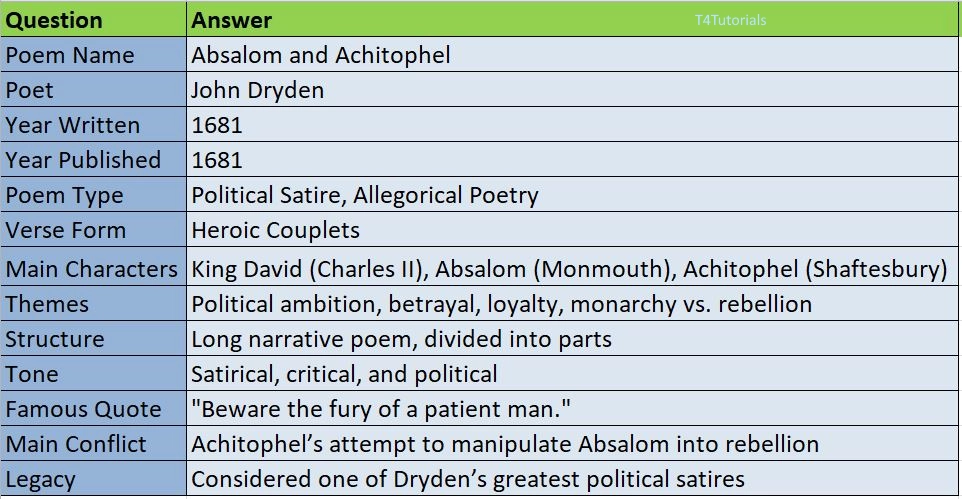Summary:
Absalom and Achitophel is a political and satirical poem written by John Dryden in 1681. It is an allegorical work that uses biblical figures to comment on contemporary English politics, particularly the Exclusion Crisis. The poem portrays King David (representing King Charles II) and his illegitimate son Absalom (representing the Duke of Monmouth). Achitophel (representing the Earl of Shaftesbury) is the cunning advisor who manipulates Absalom into rebelling against his father. The poem explores themes of loyalty, betrayal, ambition, and the dangers of political manipulation. Through his masterful use of heroic couplets, Dryden criticizes those who sought to exclude James, Duke of York (a Catholic), from the line of succession in favor of Monmouth.

Score: 0
Attempted: 0/10
Subscribe
| Question | Answer |
| Poem Name | Absalom and Achitophel |
| Poet | John Dryden |
| Year Written | 1681 |
| Year Published | 1681 |
| Poem Type | Political Satire, Allegorical Poetry |
| Verse Form | Heroic Couplets |
| Main Characters | King David (Charles II), Absalom (Monmouth), Achitophel (Shaftesbury) |
| Themes | Political ambition, betrayal, loyalty, monarchy vs. rebellion |
| Structure | Long narrative poem, divided into parts |
| Tone | Satirical, critical, and political |
| Famous Quote | “Beware the fury of a patient man.” |
| Main Conflict | Achitophel’s attempt to manipulate Absalom into rebellion |
| Legacy | Considered one of Dryden’s greatest political satires |